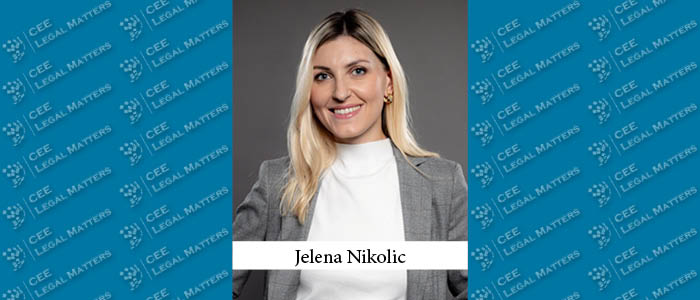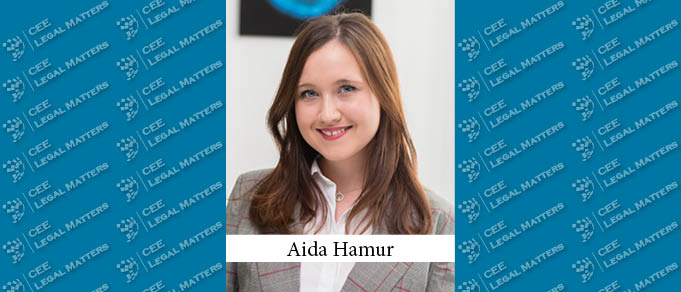Insufficiently precise provisions of the law, unharmonized court practice, as well as the average duration of the employment disputes, were affected creating the “fear of litigation” amongst many employers. Due to the stated reasons, instead of unilateral employment termination, even in cases when there is firm evidence confirming its lawfulness and validity, the employers tend to execute the mutual agreement on employment termination, as well as to pay certain one-time compensation on the said basis.
Important Regulations in Banking Legislation Regarding Risk Groups, Credit Limitations and Credit Operations of Banks
The Regulation on Determination of Risk Groups and Credit Limitations ("Risk Groups Regulation") and the Regulation on Credit Operations of Banks ("Credit Operations Regulation") prepared by the Banking Regulation and Supervision Agency ("BRSA") were published in the Official Gazette dated 21.12.2023. Accordingly, the provisions regarding the determination of risk groups and calculation of credit limits in the Regulation on Credit Operations of Banks dated 1.11.2006 ("Former Regulation") were adapted to the Risk Groups Regulation and detailed regulations on the determination of risk groups were introduced. With the Regulation on Credit Transactions, the Former Regulation dated 1.11.2006 was repealed, and other provisions of the Former Regulation were reviewed and reorganised.
Does the Fear of Misuse of Personal Data Give Rise to Compensation?
Under the GDPR, data subjects may claim compensation if they suffered damages because the controller infringed his obligations under the GDPR. Does a data theft by cybercriminals mean that the controller has not adopted appropriate data security measures meaning that he failed to comply with his data protection obligations? Can the data subject claim compensation if his only damage is the fear that his personal data was misused? The Court of Justice of the European Union answered these questions in a fresh decision which will be analysed in this short article.
The Protection of Gender Identity Under the GDPR
Although gender identity does not constitute sensitive data under the GDPR, its legal protection is nevertheless very robustly designed. Companies that choose to disregard it may face claims for damages and fines.
Green Light for Wind Power Projects in Hungary
In December 2023, the Hungarian Government significantly eased the regulatory conditions for the establishment of wind turbine projects in Hungary in order to comply with EU requirements and enhance the utilization of green energy.
New Competition Tool and Call-In Power for Mergers in Czechia?
The Czech Competition Authority (CCA) recently announced that it prepared a proposal to update the Czech Competition Act (the "Act"). While at present the proposal is just a set of ideas, it indicates how Czech competition enforcement may evolve in the years to come. Crucially, the CCA suggests deploying a "new competition tool" that will allow it to intervene even without proof of anticompetitive agreements or abuse of dominance. In addition, it wants to have call-in powers for under-threshold mergers.
New Regulation on Active Cooperation/Leniency Enters into Force in Turkey
A new Regulation on Active Cooperation for Detecting Cartels (“Regulation”) in Turkey entered into force on 16 December 2023. The Turkish Competition Authority (“TCA”) also held a helpful webinar on the topic, highlighting the differences between the old and new regulation. In this article, we highlight two changes that we consider to be the most important: (i) applicants are now required to submit documents that contribute added value; and (ii) applications from cartel facilitators are now explicitly welcomed. Lastly, we present an overview of the conditions for full immunity and for reductions in administrative monetary fines.
Changes to Hungarian Employment Law in 2024
This year several employment law rules of practical relevance will change in Hungary. These changes will have different entry into force dates, and are all briefly summarised below.
Employment Administration Speeds Up, Employment Certificate Is Introduced
We are witnessing an important advancement in the field of employment administration in Hungary. Starting from 1 January 2024, the Act on the Promotion of Employment and Unemployment Benefits was amended, introducing the obligation for employers to issue an employment certificate following the termination of employment.
Albania Proposes New Legislation on Trademarks and Patents
Albania is currently contemplating the revision of its existing legislation on industrial property currently regulated by one single law i.e., Law no. 9947, dated 7.7.2008 “On Industrial Property”, as amended. The existing law governs all domains of industrial property and business secrets, including patents of invention, utility models, trademarks, industrial designs, and geographical indications.
Employment Brief: New Rules on Platform Work in Croatia
Changes to the Croatian Labor Act, governing work for digital platforms, took effect on January 1, 2024. Croatia opted to regulate platform work before the formal adoption of the EU Platform Work Directive. What are the main novelties?
Pre-Emption Right for the Hungarian State in Case of Solar Power Investments
As of 13 January 2024, a new government decree amends the provisions of the clearance procedure of the Government Decree on certain foreign direct investments (“FDI”). The amendment grants the Hungarian State a right of first refusal in respect of acquisitions of strategic companies whose main or additional registered activity is electricity production and pursue solar power plant-related activity that are to be acquired by foreign investors.
New Measures to Reduce Mutual Debts on the Electricity Market
On 8 January 2024, the Ministry of Energy of Ukraine issued the order "On Measures to Reduce Mutual Debts on the Electricity Market" (the "Order"), which sets out the methods for dealing with the situations where market participants have unpaid bills to each other. The purpose of the Order is to stabilize the operation of the electricity market and reduce debts in its specific segments.
Boost to Hungary’s Venture Capital Market – The Implementation of “Convertible Notes” in the Hungarian Legal System
Early-stage startups often face a significant challenge due to their very limited runway – as usually they burn money faster than they are able to acquire funding – which makes external capital crucial for sustainability. From the perspective of potential investors determining the worth of these startups is a key factor in deciding whether to invest or not into the specific project which is complex and time consuming, a luxury startups often lack.
Remote Work in Bosnia and Herzegovina
By an increasing development of digital technologies, and especially following the recent COVID-19 global pandemic, many employers in Bosnia and Herzegovina have started to implement remote working in their work regime. Depending on the needs of their businesses, some employers have implemented a hybrid regime (i.e., a combination of work from the employer’s premises and remote work), while some have completely switched to remote work regime. Generally, remote work in B&H is attractive for employers, due to cost cutting (e.g. lower lease fees, lower utility costs), but also due to higher employee satisfaction as it supports work-life balance.
Bulgarian Commission for Protection of Competition to Adopt Block Exemption Decision for Certain Categories Agreements and Concerted Practices with Effect on National Markets
On 30 November 2023 Bulgarian Commission for Protection of Competition (the “CPC”) finally published draft of new decision on group exemption of certain categories of agreements, decisions and concerted practices with effect on national markets (the ”Draft”), such as: vertical agreements and practices, agreements and practices in the motor vehicle sector, specialisation and R&D agreements and practices as well as agreements for transfer of technologies, from the ban under article 15 (1) of the Competition Protection Act (the “CPA”). The latter reflects article 101 (1) of the TFEU.
E-VAT System Goes Online in Hungary
The digitalisation of the Hungarian tax system has reached another important milestone: after lengthy preparatory work (and a few setbacks), the e-VAT system was launched on 1 January 2024, on a voluntary basis, for now.
Ukraine Plans to Create Favourable Conditions for PPPs During Reconstruction
Ukraine is actively gearing up for the imminent post-war reconstruction, a major undertaking to restore the infrastructure destroyed by hostilities. An integral aspect of the preparatory measures involves enhancing the legal framework to establish favourable conditions for attracting private investments into the extensive reconstruction.






























